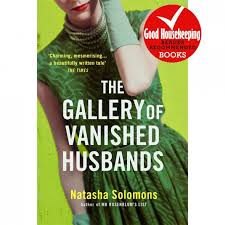My Introduction
I am a Doris Day fan and at some point, I will use this blog to explain why. I am also a lecturer and researcher in social policy for social work. (There is no explanation for my career). However, the aim of this blog is to give me a space to explore how I make sense of social policy issues and I hope engage in a dialogue with others about this. Yes, I read text books, journal articles, research papers, keep up with current affairs and being an academic I sometimes sit staring into space as ideas crystallise. But I also watch films and television, go to the theatre, listen to music, read books, visit galleries and exhibitions and sometimes it is those encounters that help me make sense of the world and why we have organised it the way we have, how fair it is and what impact it has on real lives. As one of the characters in a book I’ve just read said:
But art does have a use. It helps us see the world more clearly. Like my father’s beloved spectacles, art sharpens our perception. (Solomons, 2014:66)
What is Social Policy? (And why I think it is important)
This is a complicated question if you read social policy text books, but put simply social policy is an academic discipline about social problems and the policies designed to solve them. It is a discipline, like many in the social sciences and/or humanities which borrows across disciplines and is a blend of factual and value-based approaches. Social policy is not, for example, political science, history, organisational psychology, statistics or law, but it does overlap with each and is also often taught as a branch of sociology. Social policy as a discipline tends to take explicit political positions and is concerned with the practicalities of politics.
I think it is an important area of study, especially for social workers and especially if social work is to be seen as tool for social justice. The role of social policy within social work education is to enhance the delivery of social justice in part through an understanding of structures and policy upon people who need or are subject to social work interventions. In a previous job role, as a policy officer for a local authority I learnt that engaging critically with social policy can have great benefits for service-users. However, just because I think it is important doesn’t mean that I can always convince others of the relevance of politics, statistics, policy documents and research. As Frigga Haug (1998:117) once wrote:
The accumulation of data on such topics as unemployment, income, marital status, on the share of housework, on the percentage of high-school graduates, etc., has indeed the strange effect that the living women themselves remain external to it even when they are directly affected…
In other words, simply knowing “stuff” about the world, doesn’t always mean we understand it. Statistics don’t necessarily help us to get why we inhabit a particular space in the world. This is often experienced (for me) as a gap. A gap between who I feel myself to be and how I might be portrayed within social policy texts (as a working, middle-aged, white British woman, mother of one, co-habiting, educated, etc., etc.). Sometimes, art and culture (low and high) help me through that gap.
Using this Blog – Me and (I hope) You
So, for me this blog is a space to think about what I am learning about the world through my reading, watching, consuming of culture. It is about making links with artistic interpretations of the world with the world I read about in social policy texts. It is about trying to gain a better understanding of my surroundings locally, nationally and globally. It is also about writing and how the act of writing can help me piece together my thoughts and feelings around particular issues. As Rolfe et al. (2001: 70) say:
The reflective writing process is a way of making connections between previously disparate pieces of information, of developing ways of organising or reorganising thoughts, and of exploring issues and structures so as to be able to take a new perspective on them.
I am hoping that others will join in the conversation and we can help each other to take fresh perspectives.
I am hoping if I’ve got the technology right that there will be comments and conversations. My reading, theatre and film-going, television watching will be the start of the discussion. (This will be a bit eclectic, I have my own preferences and dislikes which will probably become apparent). I am hoping that there can be a discussion whether or not you have also read, watched, seen, visited whatever is up for debate. However, this could also be a space to make recommendations. I’m not afraid (I don’t think) of being disagreed with, so please enter any comments you think might be useful.
References
Haug, F. (1998) “Questions concerning methods in feminist research” in Burman, E. (ed) Deconstructing Feminist Psychology London:Sage
Rolfe, G., Freshwater, D. and Jasper, M. (2001) Critical reflection for nursing and the helping professions: a user’s guide Hampshire: Palgrave Macmillan
Solomons, N. (2014) The Gallery of Vanished Husbands London: Hodder and Stoughton


Well done!! I really enjoyed it & thoroughly agree.. .novels and films teach me so much more than a lot of academic txts!
LikeLike
Thank you for the feedback – posting on Lori Lansens novel – The Girls tomorrow, once I’ve decided what I really want to say.
LikeLike
Cool Rachel. Look forward to more.
LikeLike
This is a really interesting idea. Please count me in.
LikeLike
Thank you. Hope it keeps your interest.
LikeLike